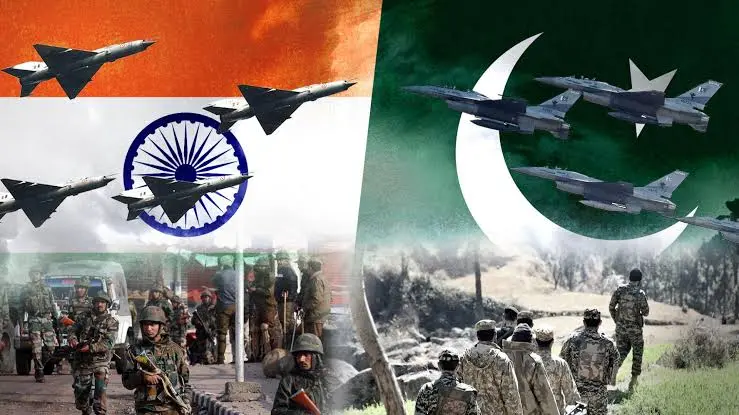India Strikes Again: Precision Attacks Hit Islamabad, Lahore After Failed Pakistani Offensive
New Delhi — Tensions between nuclear-armed neighbors India and Pakistan reached a critical juncture late Thursday as India launched precision strikes on Islamabad, Lahore, and Sialkot following a series of attempted attacks by Pakistan on Indian cities, defense officials confirmed.
The Pakistani military had launched missiles and drones aimed at at least 15 Indian cities, including Jammu, Jaisalmer, and Pathankot. However, India’s robust defense apparatus, including the S-400 missile system and advanced drone countermeasures, successfully intercepted the threats, averting significant damage or casualties.
As a defensive measure, blackouts were imposed in key Indian border cities—Srinagar, Jammu, Rajouri, Amritsar, Jalandhar, and Bhuj—to prevent visibility to enemy drones and safeguard civilians.
In a calibrated response, India deployed kamikaze drones and neutralized a Pakistani air defense system in Lahore, striking deep within Pakistani territory. Other military targets, including air defense radars in Sialkot and Islamabad, were also engaged.
The Indian Ministry of Defence confirmed, “In response to an unprovoked and unsuccessful attack by the Pakistani military, our armed forces have taken precise and measured action to ensure deterrence and defense.”
The confrontation follows Wednesday’s Operation Sindoor, during which India struck nine high-value terror targets across Pakistan and Pakistan-occupied Kashmir (PoK), including in Bahawalpur, a known hub for the Jaish-e-Mohammad (JeM) terror group. The operation was carried out after a brutal terror attack in Pahalgam killed Indian security personnel and civilians.
Pakistan, for its part, resorted to ceasefire violations along the Line of Control (LoC) in Jammu & Kashmir—a familiar escalation tactic—but Indian border forces responded swiftly and effectively to protect civilian populations.
Analysts warn that while India’s response remains tactical and targeted, the situation remains volatile.
“There is clearly a shift in India’s posture,” said a regional security analyst. “The Indian government is signaling that attacks on its soil will not go unanswered.”
As night fell across the subcontinent, both sides remained on high alert. Yet the scars of recent violence, especially the Pahalgam attack, remain fresh—fueling public support in India for a firm and decisive response.
Whether this marks a turning point in Indo-Pak relations or a dangerous step toward broader conflict, one thing is certain: the region stands at a fragile crossroads, with diplomacy and restraint now more critical than ever.



